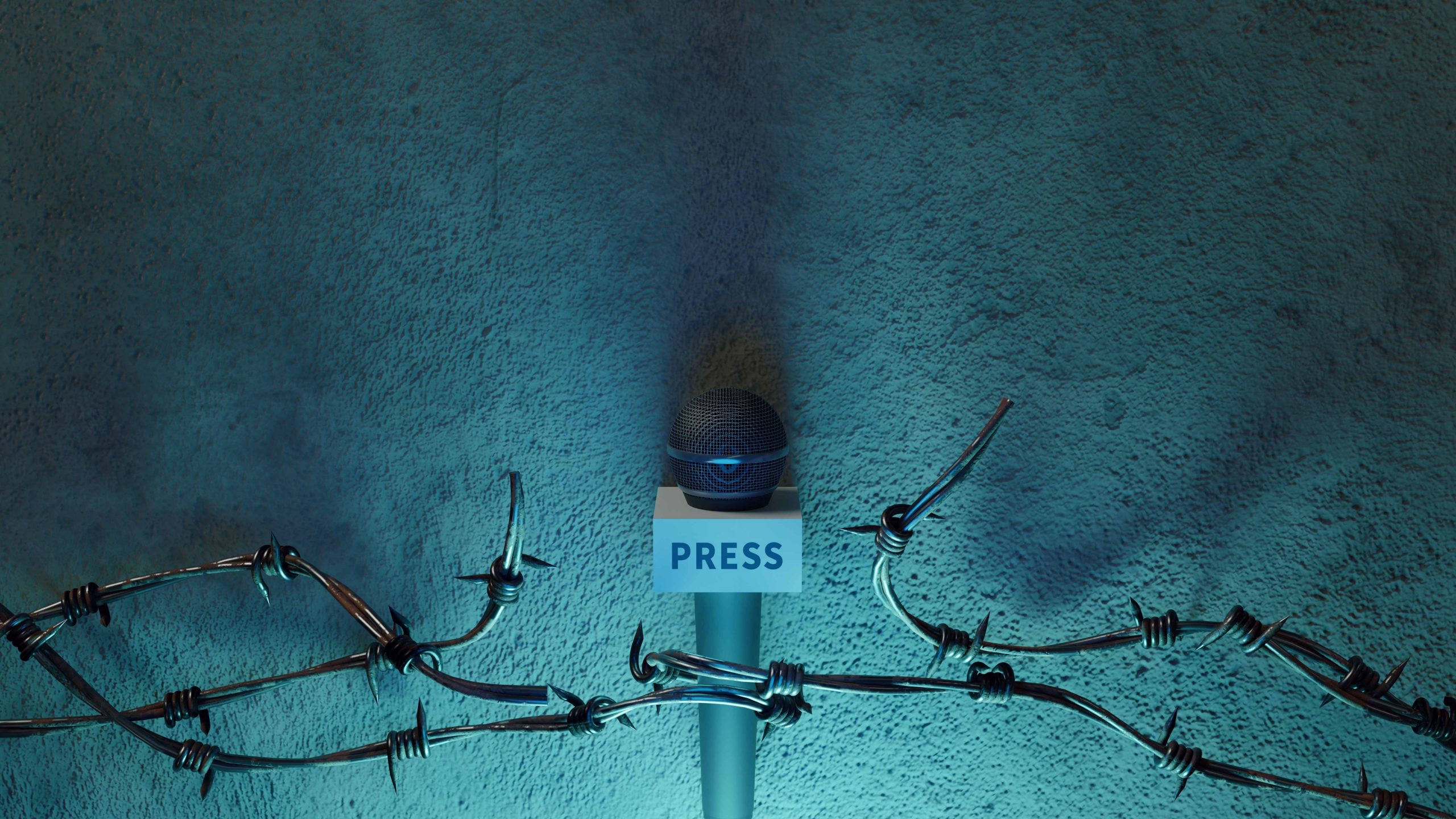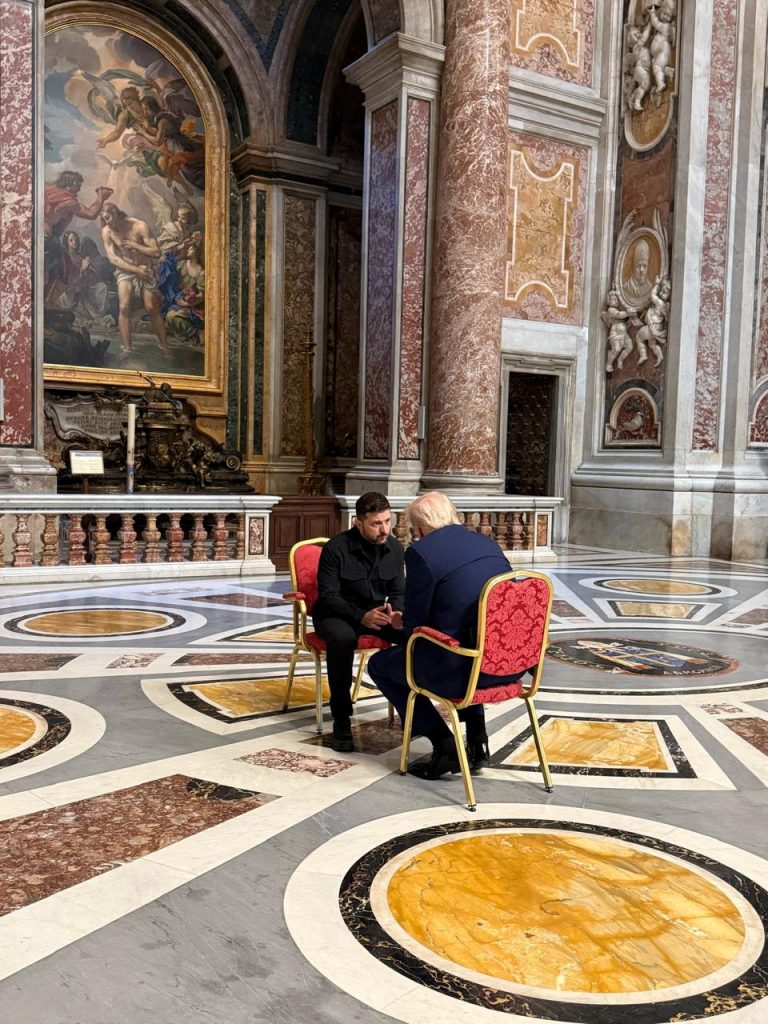Beuster goes on to comment on the new European Media Freedom Act, warning against the surveillance of journalists on national security grounds. Because, as he notes, national security is so loosely defined, it could be used against journalists at any time with only minimal justification.
Jefferson wrote to Edward Carrington many, many years ago, that if he had to choose between a government without newspapers or newspapers without a government, he wouldn’t hesitate a moment before choosing the latter: newspapers without a government. If today’s politicians were asked the same question, would they answer in the same way, or might they opt for governments without a free press?
I’d say that there are indeed politicians who would prefer a government free of media control. But it is our job to control the government. That said, I have to contradict Jefferson: it’s not one or the other. We need both. The Press and the Government have different roles to play, different functions, and the one cannot live without the other.
It’s a control function. Government has its job to do, the press—the free press—has its job to do, which is to control the government. But is doesn’t do the government’s job, which is to govern and set the rules in society. So we both have jobs to do, and a free society needs both. That said, it’s best if one doesn’t tell the other what to do. And by that I mean that the government shouldn’t say, “Go away, media, you’re just disrupting us.” That actually means we’re doing our job, right.
And I see that there are lots of politicians who see the value in a free media and put policies in place to protect media freedom.
And that’s the only way, if we want our free societies to stay free.
The European Union is drafting a new European Media Freedom Act. And there is a possibility it will permit the surveillance of journalists in cases relating to national security. Do you think the Act might open a Pandora’s box?
You’re absolutely right. The new legislation contains a great danger within it.
Because, first of all, national security is a very loose term. You can convince people to agree to anything if you say it’s in the interest of national security that we do this or that. As a German federation of journalists, we have spoken out against this clause, especially when the French presidency said it should be included in the EMFA.
Taken as a whole, though, we support the European Media Freedom Act. It’s actually good to introduce a minimum standard of press freedom in the European Union. But let me turn that round and say it’s actually alarming that we need the EMFA, that we need this legislation to protect the freedom of the press.
But then tacking other things onto this theoretically useful legislation, additional provisions that actually endanger press freedom, as you noted, well that’s actually a perversion of the basic idea that underlies the European Media Freedom Act.
So I would warn against any surveillance of journalists, on principle. Because, as I said, journalism is a human right, a fundamental right for every society.
And because national security is so loosely defined, you can use it against journalists at any time with only minimal justification. And that’s a dangerous development, and one that should not be furthered by the EMFA, which was conceived to protect media rights and freedoms.
We have surveillance, but we also have SLAPPS, abusive court proceedings against journalists. Is Germany protecting journalists against SLAPPS? Greece isn’t.
I’m afraid it’s not a Greek problem. It’s not even a European problem; it’s an international problem.
SLAPPS are designed to stop journalists from performing their crucial function, and they are a phenomenon throughout Europe.
And it’s clear that the existing legislation is not strong enough to protect journalists against threats of this sort. Freelancers, in particular, who have no protection from a media organization or a union, are particularly vulnerable as they can be individually targeted by companies.
So the basic principles behind a SLAPP is this: hire a lawyer and end the reporting you don’t like. That’s the idea behind it. Even big law firms find it convenient to suppress media reporting they don’t like by means of the law.
It’s a perversion of the law, of course, because the law actually exists to protect the human and fundamental right of press freedom.
And since we can see lawsuits of this kind actually stopping journalists from doing their work, I think we definitely need legislation against SLAPPS.
It seems right to do this at the European level, because we can get away from the national governments that way, who seem to have a problem doing that.
So I would like to see the law harmonized here, especially when we see that companies work at the European level at least, or at an international or supranational level.
So it’s necessary to do that on a European level. It doesn’t help if you’re protected in Greece but not in France, or Germany or Portugal.
Since all journalists publish on the internet nowadays, you can be attacked in those countries if your article is published in English, for example.
So we need European legislation. But again, I don’t see that the political will exists to go all the way in protecting journalists in the way they should be protected, given the important work they do.
So you think journalists and the Unions of the journalists should be putting more pressure on the lawmakers? Are they doing enough?
We are working together at a European level. We have the European Federation of Journalists, which does an excellent job lobbying in Brussels and Strasbourg and wherever the decisions-makers are.
But yes, you’re right, we need more information at the local level.
So the more journalists and politicians in Greece actually know what’s going on, the better it will be, because it’s a complex matter.
Not everybody knows what’s being discussed at the moment, what might end up being included in the EMFA.
So we need to keep journalists better informed, and politicians, too, since they don’t always know what is being discussed in Brussels.
And the more information we have on our side, the better.
So I’m always glad to be able to discuss these topics and spread the word, because the more informed we are as a society, the better informed the decisions we make will be.
Turning to Artificial Intelligence, do you think AI is going to leave us all out of work, or will it be a useful tool for us going forward?
That’s a good question. I’d say both.
It is a major opportunity for lots of industries, and especially for journalism. If you transcribe this interview, artificial intelligence can do that for you and you can do the important things that journalists do.
Is there something I said that was especially interesting?
Is there something you’d rather take out, a question you need to word differently, something you need to research some more?
Those are the questions journalists should be focusing on, not sitting in front of the computer transcribing interviews for hours on end or preparing subtitles for a video.
Artificial intelligence can do that wonderfully, and it can help us discover things, too, in enormous data troves like the Panama Papers.
Computer programs made that possible; humans probably couldn’t have scanned through all that data, and they certainly couldn’t have found things as well or effectively.
So AI provides huge opportunities for journalism, but it poses huge risks, too.
You mentioned one such risk: that our jobs may be in danger. Well, they already are.
There are whole sections in newspapers which are edited by artificial intelligence.
I’ve even heard of radio talk shows made with AI hosts with synthetic voices and artificial playlists.
So there’s a real risk, not only for journalism but for lots of industries.
So we need regulation, because it’s not the technology that’s dangerous in its current form, it’s how we use it.
So we need human intelligence to put the rules in place for artificial intelligence and the roadmap for where we go from here. So AI actually helps us with our human goals, with our human intelligence, rather than endangering us as societies.
Are you worried about the rise of the far right in Germany, or do you think that, at the end of the day, people won’t support the fascists in the EU elections?
I don’t have a mandate to talk about politics, but I have to talk about this if you ask me, because the AfD (Alternative for Deutschland) has shown itself to be against media freedoms and rights.
And yes, I am worried, and you can see that millions of people in Germany are worried as well, because they are out on the streets protesting.
Now, Germans are very reserved. They don’t go out into the street to protest against everything like they do in other countries, like the Greeks do perhaps, or the French.
So if you see Germans on the streets protesting against the far right, it’s a clear sign that yes, the German people do see the far right as a problem.
But again, I wouldn’t say it was a German problem, it’s an international issue. Because the far right are on the rise in lots of European countries, as well as in other democracies like the United States, where we can see the Trumpists moving in that direction.
So, once again, it’s an international phenomenon.
Yes, we do have problems in Germany, and yes we do have the far right attacking the freedom of the press and media freedom, but also marginalized communities, migrant communities and others.
And journalists need to be aware that there is no safe space for them in the AfD’s vision for Germany and Europe. No, those people are very much against a free press.
Which means we have to stand up and fight for media freedom, for our rights, and to show what these fascist movements really want.
Thank you for taking the time to discuss these matters. Thank you.
It was a pleasure. Give my regards to Greece.

Mika Beuster is President of the German Journalists’ Association (DJV).



